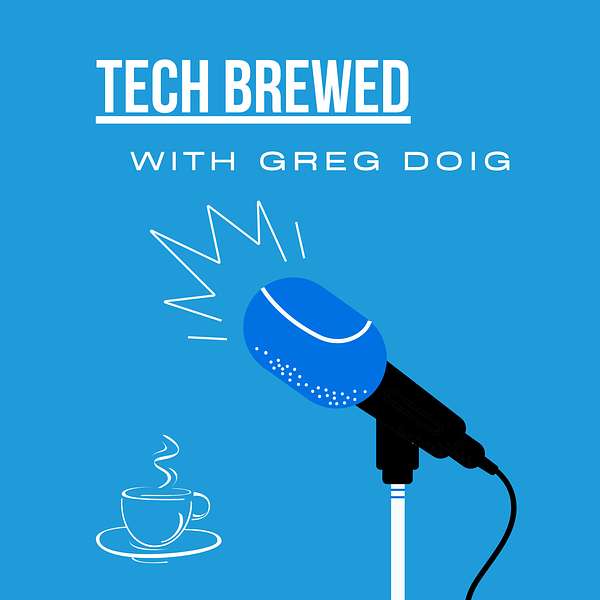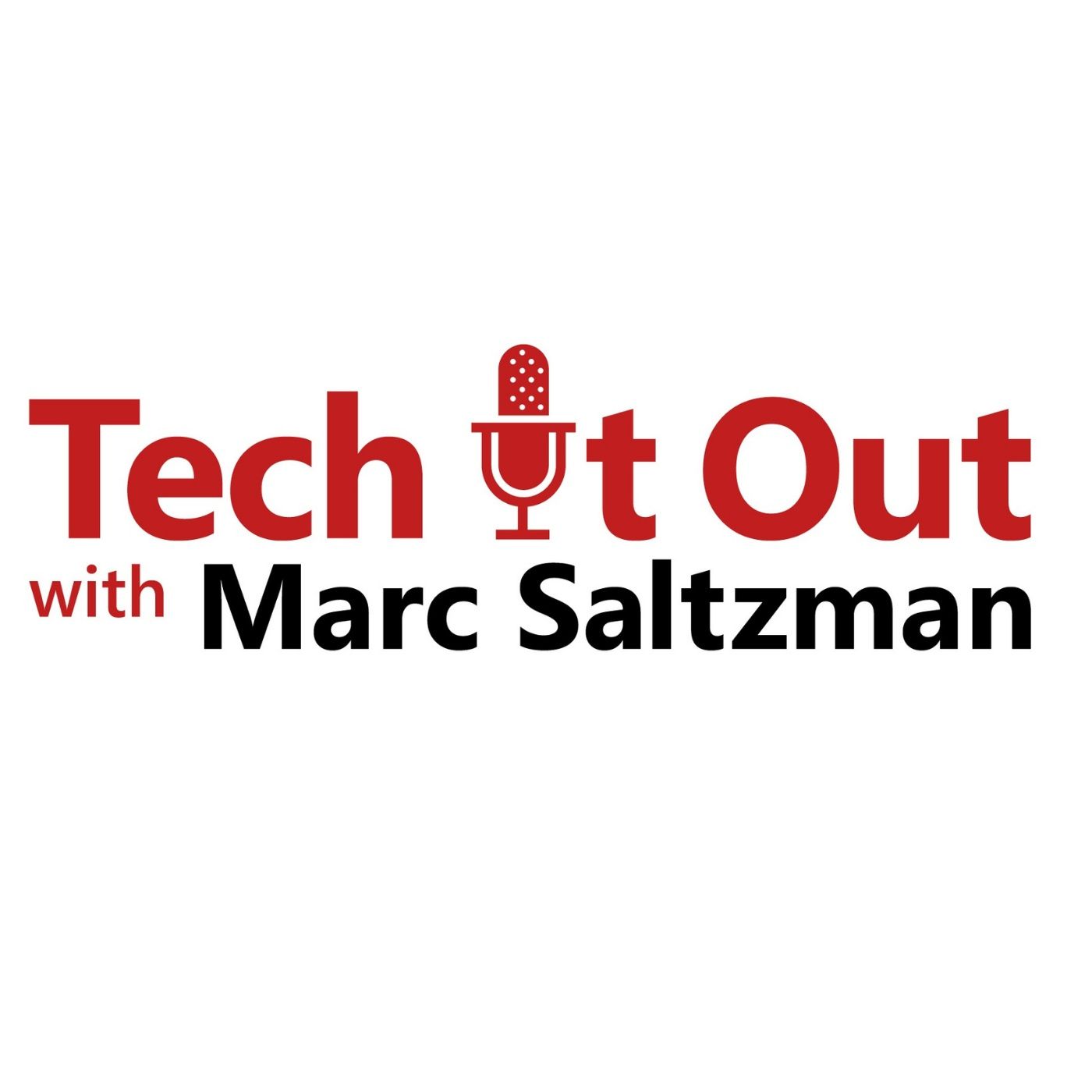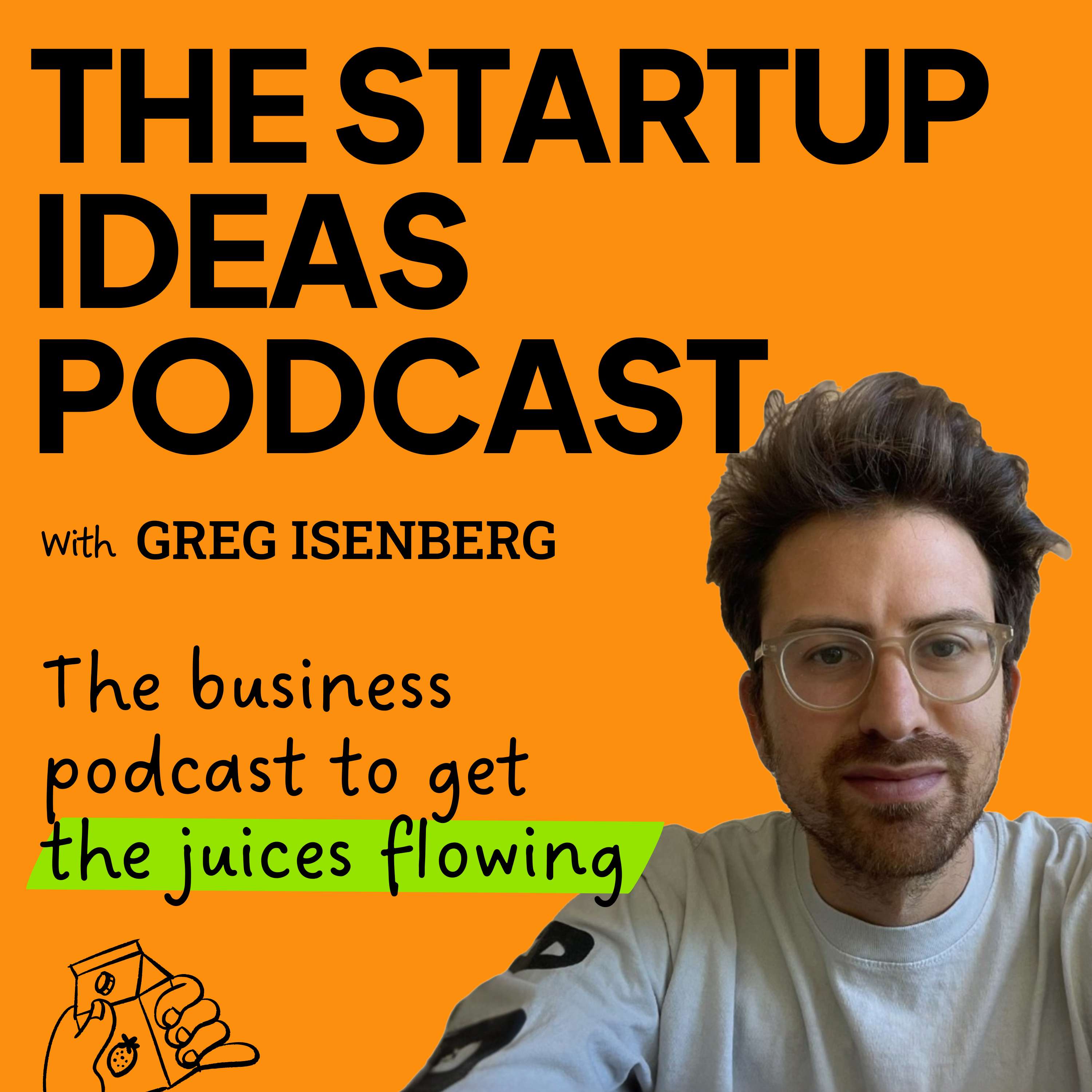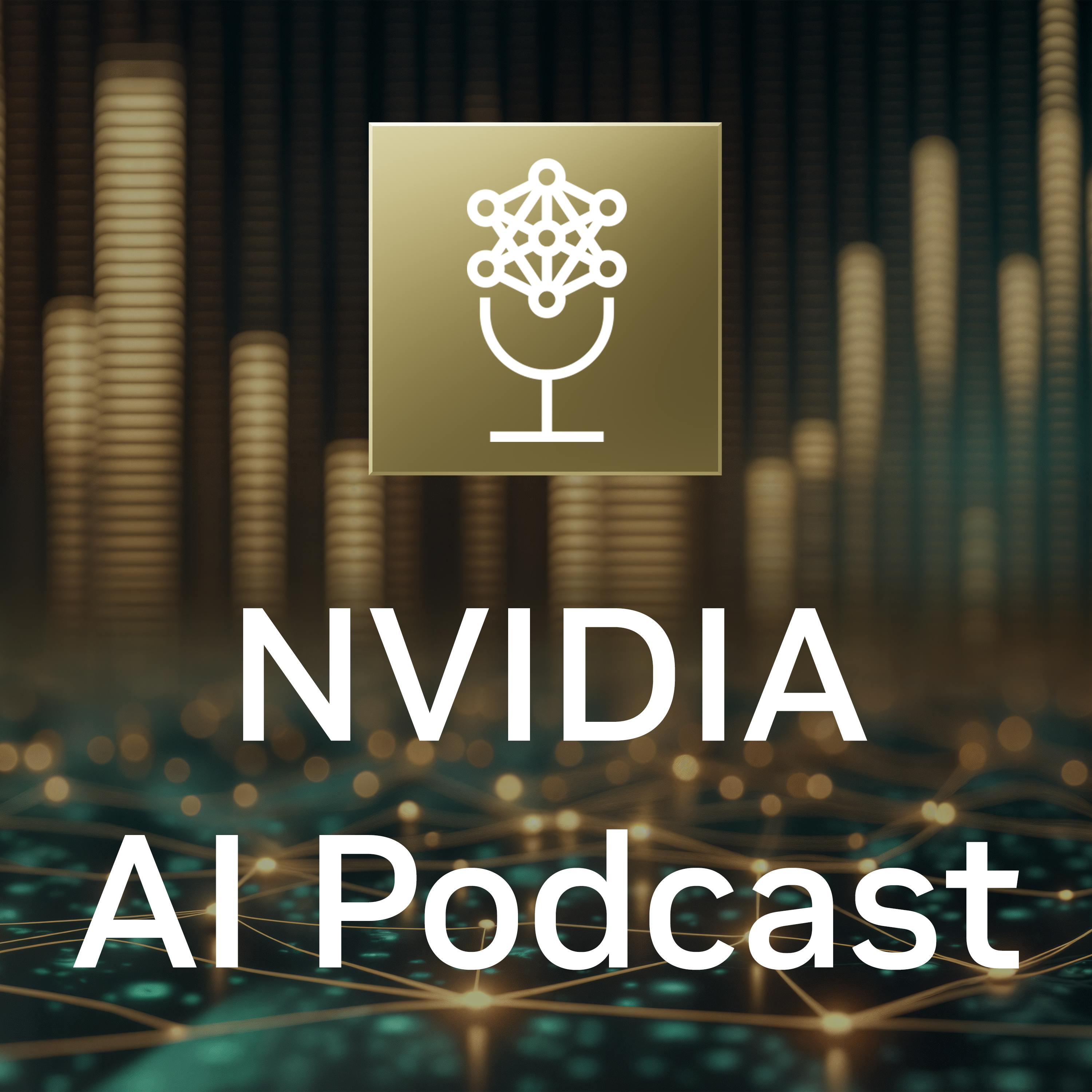
Tech Brewed
Welcome to Tech Brewed, your go-to podcast for the latest in technology products, training, and tips. Whether you're a tech enthusiast or a business professional, our show offers valuable insights into the ever-evolving world of technology.
What We Cover
Home and Business Technology Products
We delve into the latest gadgets and tools that can enhance your home and business environments. From smart home devices to enterprise-level solutions, we keep you updated on the best products for your needs.
Technology Training and Tips
Our episodes are packed with practical advice and training tips to help you maximize your tech investments. Whether you want to improve your cybersecurity or optimize your workflow, we've got you covered.
Creative Technology Software and AI
In today's digital age, creative technology software and artificial intelligence are game-changers. We explore how these innovations transform various industries and offer insights into their practical applications.
Featured Segments
AI and Its Impact
Discover how AI is changing the workplace and driving innovation. Our discussions range from improving audio quality with AI to extending life through advanced technologies.
Practical AI
Our goal is to make artificial intelligence accessible and practical for everyone. We break down complex topics into easy-to-understand segments, ensuring you stay ahead of the curve.
Join us on Tech Brewed for a deep dive into the tech world, where we blend expert knowledge with practical advice to help you navigate the digital landscape. Subscribe now and stay informed on the latest trends and innovations!
Tech Brewed
Google I/O 2025: The Dawn of AI-Native Everything
Welcome to Tech Brewed! In this episode, we're diving into the groundbreaking announcements from Google I/O 2025—an event that marks a seismic shift in the tech landscape. This year, Google didn’t just sprinkle AI onto its products; they made AI the very core of their entire ecosystem. From the evolution of Gemini as the unifying thread across Google’s services to game-changing tools for developers and creators, we’ll break down how Google is charging ahead into a truly AI-native era. You’ll hear about bold new visions for the future, practical innovations you can use today, and how democratized AI is set to empower everyone—from college students making scientific breakthroughs to product managers building solutions without writing a single line of code. If you want the inside scoop on how Google is shaping technology for 2025 and beyond, you won’t want to miss this episode.
Subscribe to the weekly tech newsletter at https://gregdoig.com
Today, I'm talking about what might be the most important Google IO recap you'll hear this year because this wasn't just another developer conference with incremental updates. This was Google's declaration that the AI native era has officially begun. Let me start with the biggest takeaway from Google IO twenty twenty five. This was the first truly AI native developer conference Google has ever held. Not AI as an add on, not AI as a nice to have feature, but AI as the fundamental organizing principle of everything Google is building. What does that actually mean? Well, instead of seeing Gemini as just another standalone model competing with ChatGPT or Claude, Google showcased how Gemini has become the connective tissue linking their entire ecosystem. We're talking about integration across consumer products, developer tools, and even scientific research initiatives. The theme they kept coming back to was from research to reality, and, honestly, that momentum was palpable. This felt like Google hit in its stride after years of playing catch up in the AI space. But here's where it gets really interesting. Google isn't just thinking about next quarter or even next year. They're painting a picture of what 2030 looks like, and their vision is pretty ambitious. By 2030, they expect Gemini to evolve into a truly proactive assistant that anticipates your needs rather than just responding to your request. We're talking about a unified experience across all your devices and services where the barriers between different Google products essentially disappear. But the bigger story is democratization. Google believes we're heading toward a future where advanced AI capabilities become accessible to everyone, breaking down traditional barriers around time, skills, and cost. And get this, they think future IO events might actually feature major scientific breakthroughs enabled by Gemini, potentially made by college students using these democratized tools. And speaking of scientific breakthroughs, Google isn't just focused on consumer applications. They're positioning AI as a solution for massive global challenges, climate change, health care, disaster relief. They mentioned examples like their work in drug discovery through isomorphic labs and medical supply delivery through Wing. The idea that democratized AI tools could enable students and researchers to make discoveries that were previously unattainable, that's not just exciting from a tech perspective, that's potentially world changing. Now let's talk about what had everyone buzzing, v o three and flow. V o three isn't just generating video anymore. We're talking about videos with talking animations, sound effects, and background audio, all from natural language descriptions. Flow is their new AI filmmaking tool, co created with industry professionals ranging from Hollywood names to emerging AI creators. And here's what I love about Google's positioning. They're not trying to replace creators. They're trying to empower them. These tools are available through their new AI Ultra plan, which is currently 50% off for the first three months, but maybe the most underrated announcement was around Gemini's native audio capabilities. Instead of generating text and converting it to speech, Gemini can now generate speech directly with natural tonality and emotional expression. You can change speaking styles and switch languages seamlessly without explicit commands. The data point that blew my mind, Gemini live conversations are typically five times longer than text based interactions. That tells you something fundamental is changing about how we interact with AI. Add in new capabilities like camera and screen sharing, and you've got an assistant that can actually help with real world tasks in real time. And for those of you who've been asking for desktop Gemini access, and I know there are a lot of you, Google heard you. Gemini has come into Chrome with a floating interface you can move around your screen. It automatically includes web page context and offers Gemini live voice capabilities. And while they're still working on dedicated desktop apps, the Chrome integration is just the beginning. They're planning to add agent mode and task delegation capabilities that would let you assign tasks to Gemini directly from your browser. And let's dive into the technical stuff for a minute. Google announced several new Gemini models, each serving different purposes. Gemini 2.5 pro with deep think is all about enhanced reasoning. It can evaluate multiple hypotheses before arriving at conclusions, leading to significant improvements in coding, math, and multimodal tasks. Then there's Gemini diffusion, which takes a completely different approach focused on speed. Instead of sequential generation, it refines content step by step, resulting in dramatically faster output. They also introduced thinking budgets, a feature that lets developers control how much the model reasons through problems and how much that costs. It's this kind of practical developer focused thinking that shows Google really understands how these tools get used in the real world. And for developers, Google unveiled some game changing tools. Jules is an asynchronous coding agent powered by Gemini 2.5 pro that handles the task you don't want to. Bug fixes, writing tests, documentation while you focus on the interesting work. Stitch completely reimagines development by starting with verbal descriptions and generating actual design files with markup. This isn't just about making coding easier for developers. It's about democratizing development for people who have ideas but lack coding skills. And CodeGen and AI Studio enables visual coding and rapid prototyping, essentially letting product managers bypass traditional documentation and directly generate functional prototypes. Now here's something that might not make the headlines, but could fundamentally change how products get built. Traditional product requirement documents are becoming obsolete. When you can directly prototype and build tangible examples of your ideas through conversational AI, why write a document describing what you want? This eliminates what's always been one of the most frustrating parts of product development, the translation loss between someone's idea and its implementation. Product managers can now be in the driver's seat of creation rather than just describing what they want to others. And Google is seeing significant momentum with developers, and they're being smart about it. Instead of forcing developers into Google specific environments, they're meeting developers where they already are in tools like Cursor and Cline. The feedback loop they're getting from real world usage is directly influencing model improvements. Companies like Cursor have specifically influenced enhancements to tool calling functionality. This rapid iteration cycle is exactly what you want to see in a fast moving space like AI. And here's my take. Google IO twenty twenty five represents a pivotal moment. We're witnessing the transition from AI as an experimental add on to AI as the fundamental organizing principle of how we build and interact with technology. For developers and businesses, this feels like an inflection point. Google has demonstrated not just technical capability, but practical understanding of how these tools actually get used. The combination of powerful models, practical developer tools, and real world feedback loops creates a compelling platform for building the next generation of AI powered applications. For creators and nontechnical users, the democratization story is equally compelling. We're moving toward a world where having an idea is much closer to having the ability to implement that idea. And for all of us, we're getting a preview of a future where technology becomes increasingly proactive, where creation barriers continue to fall, and where human creativity gets amplified rather than replaced. And it's Google's vision for 2025 and beyond. And based on what I saw at IO, they're well on their way to making it a reality. That's all for today's deep dive into Google IO twenty twenty five. And as always, thanks for listening. And until next time, keep building the future.






